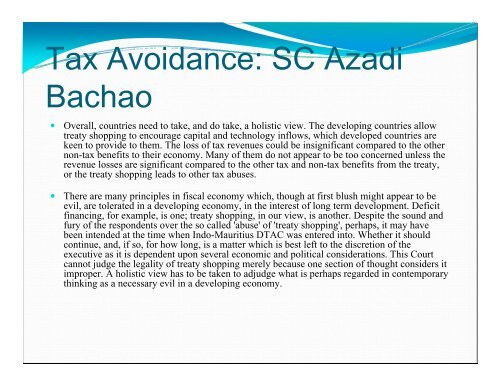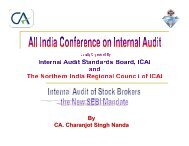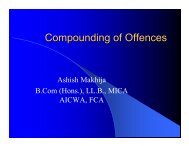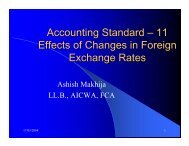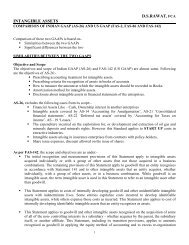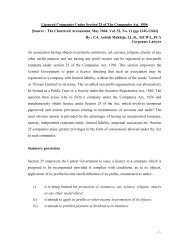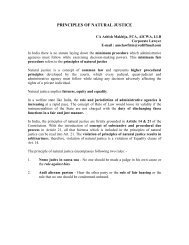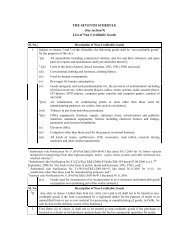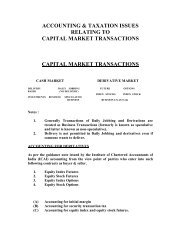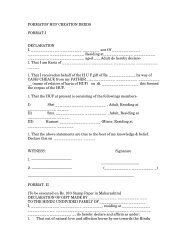2 July 2010,Friday Kapil Goel B.Com(H) FCA LLB Advocate Delhi ...
2 July 2010,Friday Kapil Goel B.Com(H) FCA LLB Advocate Delhi ...
2 July 2010,Friday Kapil Goel B.Com(H) FCA LLB Advocate Delhi ...
- No tags were found...
Create successful ePaper yourself
Turn your PDF publications into a flip-book with our unique Google optimized e-Paper software.
Tax Avoidance: SC AzadiBachao• Overall, countries need to take, and do take, a holistic view. The developing countries allowtreaty shopping to encourage capital and technology inflows, which developed countries arekeen to provide to them. The loss of tax revenues could be insignificant compared to the othernon-tax benefits to their economy. Many of them do not appear to be too concerned unless therevenue losses are significant compared to the other tax and non-tax benefits from the treaty,or the treaty shopping leads to other tax abuses.• There are many principles in fiscal economy which, though at first blush might appear to beevil, are tolerated in a developing economy, in the interest of long term development. Deficitfinancing, for example, is one; treaty shopping, in our view, is another. Despite the sound andfury of the respondents over the so called 'abuse' of 'treaty shopping', perhaps, it may havebeen intended at the time when Indo-Mauritius DTAC was entered into. Whether it shouldcontinue, and, if so, for how long, is a matter which is best left to the discretion of theexecutive as it is dependent upon several economic and political considerations. This Courtcannot judge the legality of treaty shopping merely because one section of thought considers itimproper. A holistic view has to be taken to adjudge what is perhaps regarded in contemporarythinking as a necessary evil in a developing economy.


